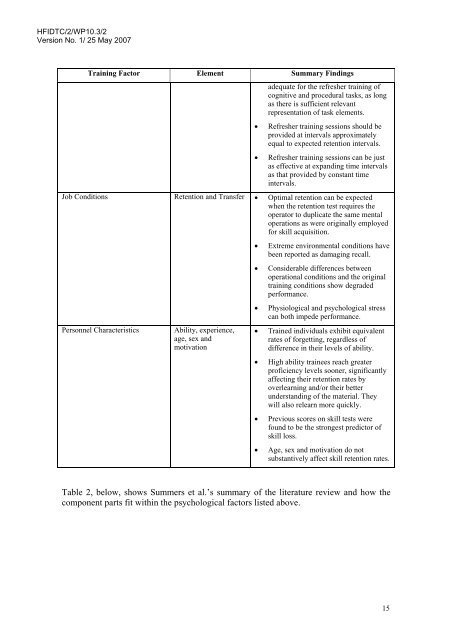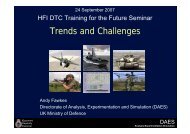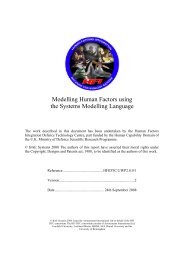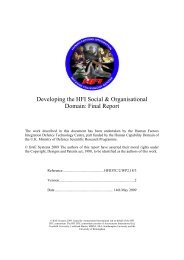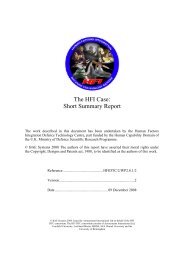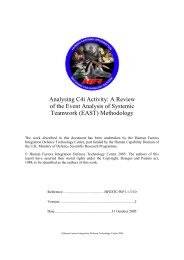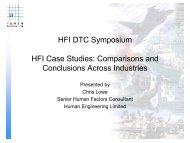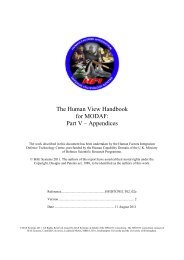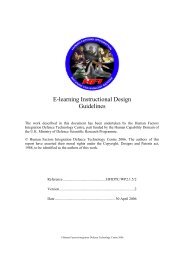Literature Review on Skill Fade - Human Factors Integration ...
Literature Review on Skill Fade - Human Factors Integration ...
Literature Review on Skill Fade - Human Factors Integration ...
Create successful ePaper yourself
Turn your PDF publications into a flip-book with our unique Google optimized e-Paper software.
HFIDTC/2/WP10.3/2<br />
Versi<strong>on</strong> No. 1/ 25 May 2007<br />
Training Factor Element Summary Findings<br />
adequate for the refresher training of<br />
cognitive and procedural tasks, as l<strong>on</strong>g<br />
as there is sufficient relevant<br />
representati<strong>on</strong> of task elements.<br />
• Refresher training sessi<strong>on</strong>s should be<br />
provided at intervals approximately<br />
equal to expected retenti<strong>on</strong> intervals.<br />
• Refresher training sessi<strong>on</strong>s can be just<br />
as effective at expanding time intervals<br />
as that provided by c<strong>on</strong>stant time<br />
intervals.<br />
Job C<strong>on</strong>diti<strong>on</strong>s Retenti<strong>on</strong> and Transfer • Optimal retenti<strong>on</strong> can be expected<br />
when the retenti<strong>on</strong> test requires the<br />
operator to duplicate the same mental<br />
operati<strong>on</strong>s as were originally employed<br />
for skill acquisiti<strong>on</strong>.<br />
Pers<strong>on</strong>nel Characteristics<br />
Ability, experience,<br />
age, sex and<br />
motivati<strong>on</strong><br />
• Extreme envir<strong>on</strong>mental c<strong>on</strong>diti<strong>on</strong>s have<br />
been reported as damaging recall.<br />
• C<strong>on</strong>siderable differences between<br />
operati<strong>on</strong>al c<strong>on</strong>diti<strong>on</strong>s and the original<br />
training c<strong>on</strong>diti<strong>on</strong>s show degraded<br />
performance.<br />
• Physiological and psychological stress<br />
can both impede performance.<br />
• Trained individuals exhibit equivalent<br />
rates of forgetting, regardless of<br />
difference in their levels of ability.<br />
• High ability trainees reach greater<br />
proficiency levels so<strong>on</strong>er, significantly<br />
affecting their retenti<strong>on</strong> rates by<br />
overlearning and/or their better<br />
understanding of the material. They<br />
will also relearn more quickly.<br />
• Previous scores <strong>on</strong> skill tests were<br />
found to be the str<strong>on</strong>gest predictor of<br />
skill loss.<br />
• Age, sex and motivati<strong>on</strong> do not<br />
substantively affect skill retenti<strong>on</strong> rates.<br />
Table 2, below, shows Summers et al.’s summary of the literature review and how the<br />
comp<strong>on</strong>ent parts fit within the psychological factors listed above.<br />
15


